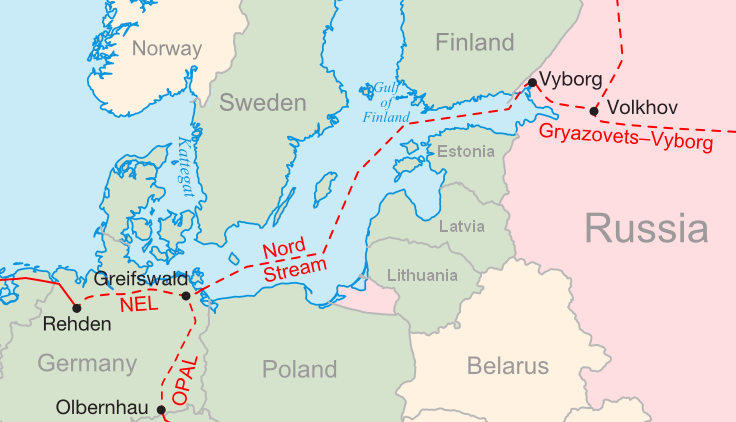The Court of Justice of the European Union (CJEU) has ruled in Poland’s favour against Germany, upholding an earlier decision to restrict the access of Russia’s state-owned Gazprom to the Ostsee-Pipeline-Anbindungsleitung (OPAL) pipeline.
The dispute dates back to 2016, when the European Commission lifted a cap that had previously allowed Gazprom to use only 50% of the capacity of OPAL, which connects to the Nord Stream 1 pipeline that brings gas from Russia to Germany.
That decision was challenged by Poland and its state-owned gas firm, PGNiG, which argued that it would harm competing pipelines and thereby violate the principle of energy solidarity. In 2019, the CJEU ruled in favour of Warsaw, which hailed the verdict as a boost to Ukraine’s negotiating position with Russia.
The Polish government has long expressed opposition to the Nord Stream pipelines, which it argues gives Russia enormous power over Europe and can be used in particular against eastern European countries, which are bypassed by the pipelines.
Germany, however, appealed the 2019 CJEU decision, claiming that “energy solidarity is only a political concept, and not a legal one”. But today the court upheld its previous position in Poland’s favour.
“The principle of energy solidarity is fundamental and EU bodies are obliged to apply it when taking decisions,” said PGNiG’s CEO, Paweł Majewski, in response to today’s ruling. “The verdict strengthens Poland’s energy security.”
Majewski added that his firm “expects [the same principle] to be applied also in relation to the Nord Stream 2 project”, referring to the nearly complete second pipeline. “The judgement of the CJEU significantly strengthens our position in this matter…and may be of significant importance for the further fate of Nord Stream 2.”
Gazprom has so far been able to offset the restrictions on OPAL by diverting gas to its Nel and Eugal pipelines, which deliver to largely the same markets, notes Argus Media, an energy market information provider..
However, with halved access to OPAL, it will struggle to make use of the full capacity of both Nord Stream 1 and Nord Stream 2 and may thus need to continue using alternative routes, including through Ukraine.
Earlier this year, the Biden administration decided to waive sanctions on the company behind the second pipeline, Nord Stream 2 AG, as well as its chief executive. Poland’s foreign minister criticised Washington’s unilateral decision and warned that it was falling into the same “Russian trap” as Germany.
Last year, Gazprom launched legal action against Poland’s anti-trust regulator, UOKiK, after it imposed a fine on the Russian gas giant for its refusal to cooperate in an investigation into the Nord Stream 2 project.
Main image credit: Samuel Bailey/Wikimedia Commons (under CC BY 3.0)

Maria Wilczek is deputy editor of Notes from Poland. She is a regular writer for The Times, The Economist and Al Jazeera English, and has also featured in Foreign Policy, Politico Europe, The Spectator and Gazeta Wyborcza.




















